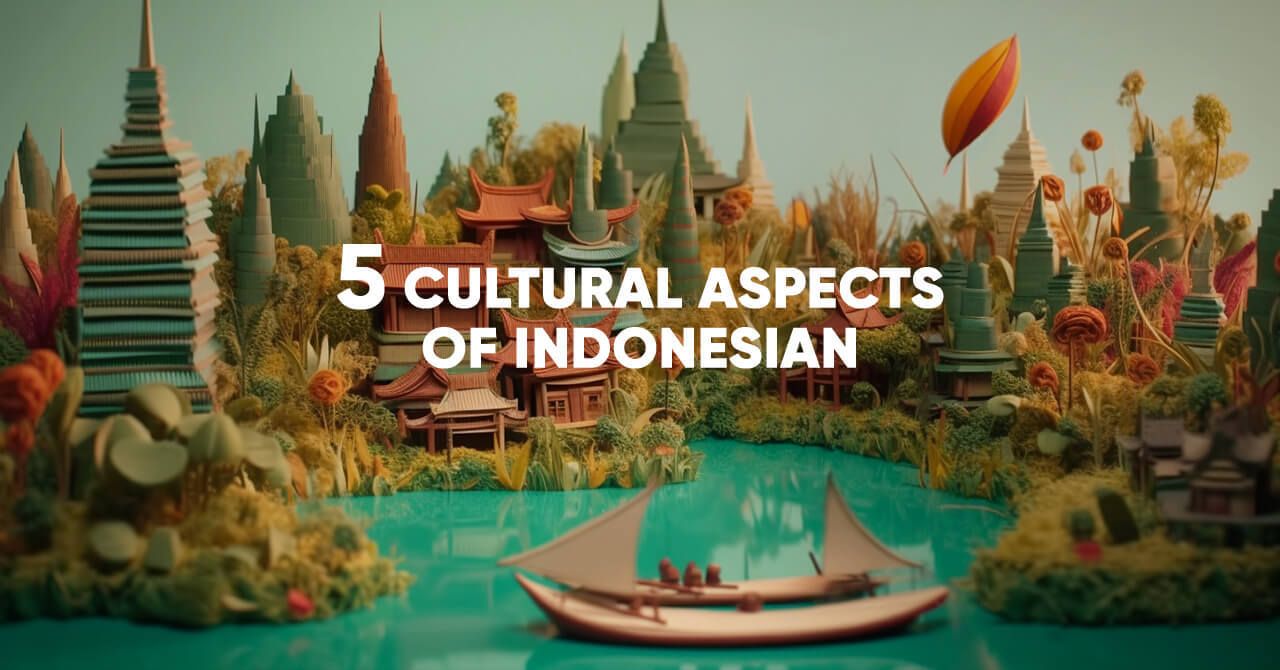
5 Cultural Aspects of Bahasa Indonesia to Explore
Learning Bahasa Indonesia is not just about learning a language—it’s also about immersing yourself in a rich and vibrant culture.
Selamat datang teman-teman!
I’m excited to share with you some of the cultural aspects that you will learn as you study Bahasa Indonesia. By the way, “Bahasa” means “language,” so “Bahasa Indonesia” is the Indonesian language. As a native speaker, I understand the importance of language in expressing one’s cultural identity. So let’s dive right into it!
Honorifics—words for showing respect
One of the first things you will notice when learning Bahasa Indonesia is the use of honorifics. These are words or phrases that show respect for someone based on their social status or age. For example, when addressing someone who is older or has a higher social status, it is common to use the honorific “Bapak” for men and “Ibu” for women. Similarly, when addressing someone who is younger or of lower social status, it is common to use “Adik” for younger siblings or “Kakak” for older siblings.
Gotong-royong
Another interesting cultural aspect of Bahasa Indonesia is the concept of “gotong-royong.” This refers to the spirit of cooperation and community involvement that is deeply ingrained in Indonesian culture. In practice, this often means working together on community projects or volunteering to help those in need. It is a beautiful aspect of Indonesian culture that fosters a sense of unity and togetherness.
Loanwords
When learning Bahasa Indonesia, you will also come across many loanwords from other languages, particularly Dutch and Javanese. For example, the word “kantor” comes from the Dutch word for “office,” while “guru” comes from the Javanese word for “teacher.” These loanwords reflect Indonesia’s history of colonization and cultural exchange and are a testament to the country’s rich linguistic heritage.
Cuisine
Of course, no discussion of Indonesian culture would be complete without mentioning the food! Indonesian cuisine is diverse and delicious, with influences from all over the archipelago. Some of the most popular dishes include nasi goreng (fried rice), sate (skewered meat), and rendang (spicy beef stew). And let’s not forget about the drinks—Indonesian coffee and tea are famous around the world for their unique flavors and aromas.
Religion
Last, but not least, it’s worth noting that religion plays an important role in Indonesian culture. The majority of Indonesians are Muslim, and this is reflected in many aspects of daily life, from the call to prayer that echoes across the cities and villages to the many mosques and religious festivals that are held throughout the year.
In conclusion, learning Bahasa Indonesia is not just about learning a language—it’s also about immersing yourself in a rich and vibrant culture. From the use of honorifics to the spirit of gotong-royong, the loanwords from other languages, the delicious food, and the influence of religion, there is so much to discover and explore. So, let’s get started! Selamat belajar!
I'm a 25 y/o Indonesian Psychology graduate living in West Java. As HR professional, I enjoy reading, Youtube, swimming, and traveling. I've taught Singaporeans Bahasa Indonesia.

